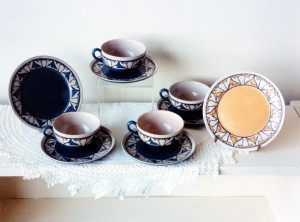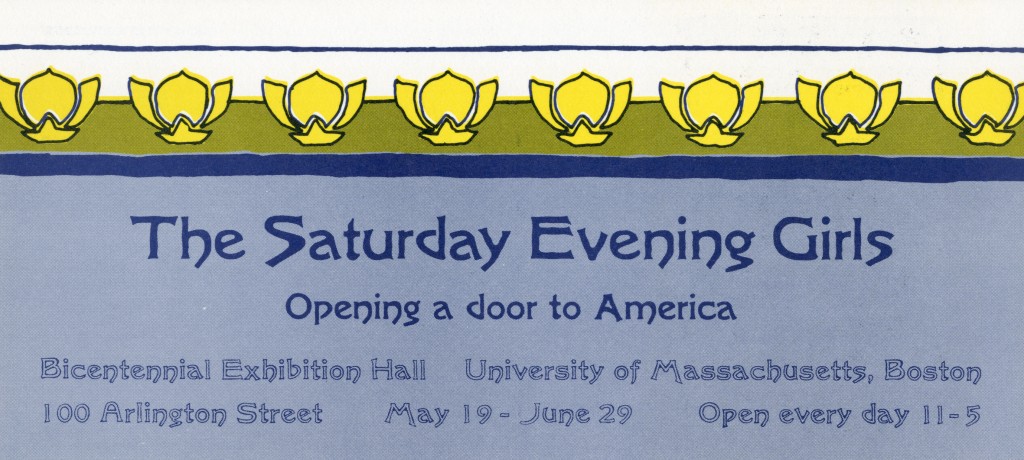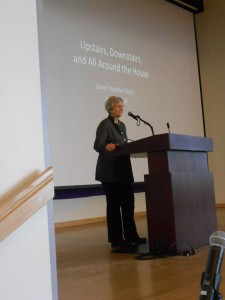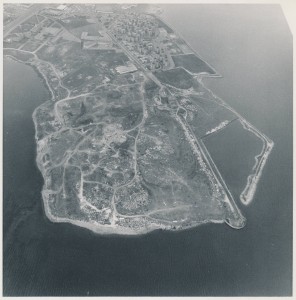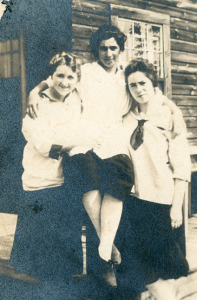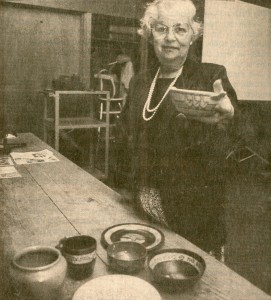
“Barbara Maysles Kramer with Revere pottery made by Saturday Evening Girls.” Boston Globe. May 12, 1991.
University Archives & Special Collections in the Joseph P. Healey Library at UMass Boston is pleased to announce that the Barbara Maysles Kramer: Saturday Evening Girls papers are now open and available for research. Spanning eight linear feet, this collection documents Barbara Maysles Kramer’s research, in collaboration with her husband, Dr. Bernard M. Kramer, on the Saturday Evening Girls (1899-1969) and the Paul Revere Pottery (1908-1942). Barbara Maysles Kramer was the daughter of Ethel Epstein Maysles, a long-standing member of the Saturday Evening Girls. The collection also documents the Kramers’ preparations for a book entitled Tales of the Paul Revere Pottery (unpublished).
The Saturday Evening Girls, or SEG, was a club established by BPL librarian Edith Guerrier for young immigrant women living in Boston’s North End. Members were involved in a variety of activities, including singing, theater, folk dancing, discussions of classic literature, lectures from prominent Bostonians, arts and crafts, and the publication of a newspaper, the SEG News. In 1908, Edith Guerrier and her partner, Edith Brown, established the Paul Revere Pottery with financial support from local philanthropist Helen Osborne Storrow. Members of the Saturday Evening Girls worked at the Paul Revere Pottery, creating colorful, often whimsically-themed pottery that was part of the Arts and Crafts movement.
The Barbara Kramer papers include issues of the SEG News, photographs of the SEG members and their activities, and response forms from a survey that Kramer conducted with surviving SEG members and their descendants. The collection also documents an exhibit held at UMass Boston’s original campus in Park Square in 1975, The Saturday Evening Girls: Opening a door to America. Also available in the Healey Library’s Special Collections is Barbara Maysles Kramer’s personal copy of An Independent Woman: The Autobiography of Edith Guerrier (call number: Z720.G89 A3 1992).
For questions about this collection or to schedule a research appointment, please contact library.archives@umb.edu or 617-287-5469.
View the finding aid for this collection.
University Archives & Special Collections in the Joseph P. Healey Library at UMass Boston collects materials related to the university’s history, as well as materials that reflect the institution’s urban mission and strong support of community service, notably in collections of records of urban planning, social welfare, social action, alternative movements, community organizations, and local history related to neighboring communities.
University Archives & Special Collections welcomes inquiries from individuals, organizations, and businesses interested in donating materials of an archival nature that that fit within our collecting policy. These include manuscripts, documents, organizational archives, collections of photographs, unique publications, and audio and video media. For more information about donating to University Archives & Special Collections, click here or email library.archives@umb.edu.

